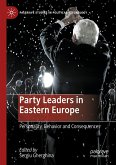European leaders faced the Covid-19 pandemic by adopting very different leadership styles, characterized by diverging approaches to crisis communication, power management, and relationship-building with actors and stakeholders in the public sphere. The pandemic also highlighted the importance of the already-existing cleavage between populism and technocracy, positioning it at the centre of the political scene.
These complex circumstances required a multidisciplinary perspective grounded in political sociology and communication studies. To address these issues, this book analyses the communication and leadership styles of seven European leaders, grouped into 'political families'. It analyses the cases of Angela Merkel and Erna Solberg to understand if and how female leaderships differentiated from their male counterparts. It then analyses the relationship between techno-populism and professional politics by comparing the cases of Giuseppe Conte, Emmanuel Macron and Pedro Sanchez.Finally, it focuses on populist leaders Boris Johnson and Victor Orbán, who represent emblematic cases with opposite outcomes.
These complex circumstances required a multidisciplinary perspective grounded in political sociology and communication studies. To address these issues, this book analyses the communication and leadership styles of seven European leaders, grouped into 'political families'. It analyses the cases of Angela Merkel and Erna Solberg to understand if and how female leaderships differentiated from their male counterparts. It then analyses the relationship between techno-populism and professional politics by comparing the cases of Giuseppe Conte, Emmanuel Macron and Pedro Sanchez.Finally, it focuses on populist leaders Boris Johnson and Victor Orbán, who represent emblematic cases with opposite outcomes.








